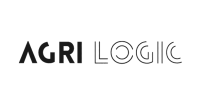On request of Rainforest Alliance, Agri-Logic developed a tool for its cocoa certification programme that allows certificate holders to quickly and reliably estimate the gap to the living income of farmers in its supply chain. The model in the tool was developed from a large set of Farmer Field Book time-series data from Ghana and Cote d’Ivoire. The model relies on the very strong relationship between a farmer’s production level and income. Tool users need only add data on 5 variables for each farmer to the tool. The 5 variables are in most instances already available in existing datasets of the certificate holder and as such require no additional data collection. Reliability testing showed the tool to be highly accurate, erring no more than a single percentage point when assigning farmers to above and below the living income categories. This tool is currently being rolled by Rainforest Alliance to cocoa certificate holders who wish to report on living income development.

Farmer segmentation for Sustainable Management Services (SMS)
Agri-Logic was requested by Sustainable Management Services (SMS) to assist in the development useful and meaningful segmentation methods that can be used to tailor services of SMS to farmers.
For farmer segmentation, Agri-Logic developed a multi-lingual dashboard, designed to allow the user to choose the segmentation logic by which farmer segmentation should occur. The dashboard shows the key characteristics of each segment, as defined by the user’s chosen settings. This can help the SMS operational teams to better target services to segments of farmers.

Cocoa sustainability management Nigeria & Ghana
The cocoa sector is constantly considering sustainability. Low quality and low yields are a continued focus. Livelihoods, poverty, nutrition and education require attention. Most large chocolate makers have committed to sourcing 100% certified as sustainable in 2020. Many of these end buyers require increased volumes of certified cocoa, while considering their impact targets beyond 2020. All international traders and several local exporters have partnered with these large chocolate brands for sustainable impact.
Through our consulting branch in Nigeria, we support implementers throughout West Africa in designing the project objectives, organization structure, traceability procedures and budget. We are working as a project liaison monitoring progress and impact. We have analysed the project baseline, and are monitoring progress. We identify any project risks that might affect certification status, our outreach targets and our credibility. We look for opportunities to increase impact.
We integrate sustainable impact with commercial objectives. Since 2016, we have supported our clients and partners who have reached out to a significant number of farmers across West Africa, and the numbers and impact keep expanding annually. UTZ certification was obtained, and the field presence is leveraged to increase impact on livelihoods.

Farmer Field Book implementation Ghana
Sustainable Management Services Ghana (part of Ecom group), a number of its chocolate manufacturing clients and IDH, The Sustainable Trade Initiative run a large scale sustainability programme in Ghana targeting tens of thousands of cocoa farmers. The programme aims to improve their productivity, profitability and in turn enhance farmer loyalty. All parties expressed a need to gain better insight into farm and farmer performance and an enhanced understanding of the programme’s effects.
To meet the requirements, Agri-Logic is assisting Ecom and its partners to implement the Farmer Field Book. Close to 1,075 farmers across 43 districts keep daily records of all their activities, investments and outputs on their cocoa farms. This information is collected every 2 weeks and digitised in the FFB software. Every year each farmer receives a detailed agronomic and economic profit & loss statement as well as a group report that details the performance of each farmer versus that of his/her peers. Agri-Logic trains Ecom staff on implementation of the FFB and supports the implementation by analysing the collected data at different levels. At company level a sophisticated report is made each year that details the effects of Ecom-provided training and inputs to farmers on e.g. productivity, profitability and loyalty. Data from Ghana is then merged with FFB data from other cocoa-producing countries for meta analysis of the IDH cocoa programme.
Results so far:
- 64 Ecom management and staff trained in FFB implementation
- Same staff trained on farm level data analysis
- 1075 farmers keep records on a daily basis
- Collection of the third year’s data currently on-going
